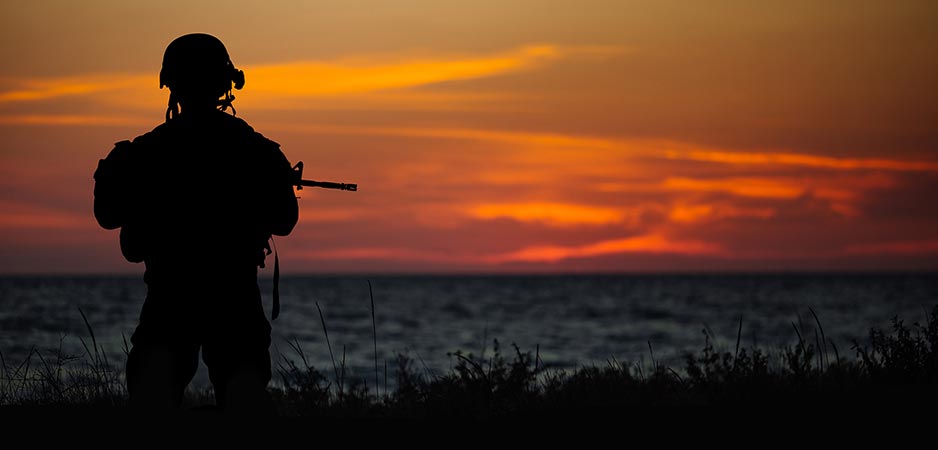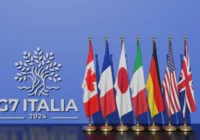Following the attack on Saudi oil facilities, US President Donald Trump has finally responded with action by sending troops to the Middle East. He has left his secretary of state, Mike Pompeo, the challenge of justifying why the US even needs to take action. The impression that emerges for a naive observer might be that the US considers Saudi Arabia to be one of its overseas possessions, unless it’s the federal government in Washington that has become one of Saudi Arabia’s possessions (with Israel as a part-owner).
In a suitably brief article, USA Today reports that, after initially responding by imposing supplementary sanctions on Iran, Trump “has approved the deployment of U.S. forces, which will be defensive in nature and primarily focused on air and missile defense. The United States does not seek conflict with Iran.”
Here is today’s 3D definition:
Defensive:
Aggressive, when applied to any action outside of one’s own borders
Contextual Note
We described the USA Today article as “suitably brief” because, despite appearing to recount the essential facts, it related only a single fact: the decision to deploy troops. Deprived of all context, perspective and consideration of cause and effect, this kind of reporting of a presidential decision as a raw fact implicitly conveys a simple idea. It highlights, with a tinge of admiration, the resolute decision-making of a president ready to mobilize the nation’s military might in what is uncritically assumed to be a good cause: defending the innocent. In this case, Trump’s indefectible ally, Saudi Arabia, plays the role of the innocent.
Calling the action “defensive” and targeting Iran requires making a series of unsupported assumptions. The first is that Iran attacked Saudi oil facilities, which has not been established. The second is that Iran is the enemy of the US, despite the fact that there is no state of war between the two nations other than the economic war unilaterally waged by the Trump administration. The third, which follows from the first two, is that any action taken against Iran must be defensive. USA Today offers its readers not even a shred of evidence as to why any of those assumptions might be considered true.
Reporting on the same event, Foreign Policy refreshingly gives more details, explaining why the US government considers the operation defensive. “Speaking at the Pentagon, Secretary of Defense Mark Esper said the deployment of U.S. forces will be focused on enhancing Saudi Arabia’s defensive capabilities.” The US is helping another nation defend itself. But against whom? The same article admits that the party responsible for the attack in Saudi Arabia has not been definitively identified. The authors note: “As other U.S. and Saudi officials have done, Esper stopped short of confirming that the strikes originated from Iran.”
Less hesitantly, CNN affirms not only that the “US has yet to offer definitive proof that Iran conducted the attack,” but it also observes that US officials are currently working diligently “to pin the blame on Iran.” Just like Lyndon Johnson pinned the Bay of Tonkin incident on North Vietnam and George W. Bush pinned the massively destructive tail on Saddam Hussein’s donkey.
As CNN reports, to justify the defensive character of what logically amounts to planned military action, Pompeo explained: “There were no Americans killed in this attack but any time you have an act of war of this nature, there’s always risk that that could happen.”
At no point does CNN bother to examine Pompeo’s very dicey logic. It requires believing that on any occasion in which an American is killed somewhere in the world in the context of a conflict between two other nations, the US will be ready to prepare a military response against the attacking nation. That would presumably mean that if an American who happened to be working in Iran were a victim of a Saudi attack on Iran, the US would be impelled to ally with Iran. Wouldn’t it be more honest to admit the obvious? Very simply, that means if there is a war between Saudi Arabia and Iran, the US will not just back but join Saudi Arabia.
But Pompeo’s curious (disingenuous) logic doesn’t stop there. He justifies military measures simply because the risk exists that an American could be killed in Saudi Arabia. When there is a risk of war in areas where Americans are living or working, the State Department requires all its citizens, other than Red Cross and some journalists, to evacuate. They remain at their own risk. In its surreal way, it sounds almost as if Pompeo is hoping for the death of an American to justify war with Iran.
But Pompeo pushed his logic even further when he “made clear that regardless of who actually it carried out, the US will hold Iran responsible. It doesn’t matter … It’s not the case that you can subcontract out the devastation of five percent of the world’s global energy supply and think that you can absolve yourself of responsibilities.”
These remarks reveal that the real reason war may yet be inevitable is concern that America’s effective control of the global oil market may be imperiled. If Saudi Arabia’s oil fields prove vulnerable as an unintended consequence of its four-year-old destructive war in Yemen, the US will lose its ability to dictate, in partnership with Saudi Arabia, the rules that guide the planet’s oil market. As ever, “it’s all about the oil” and not really about American lives.
But there is one other takeaway from this story: war (in Yemen) begets war (in the entire region and possibly the globe).
Historical and Cultural Note
Whether it takes the form of a “brief” (relating a single fact, devoid of context, as in USA Today) or more extensively as a strategic narrative (on CNN), we are tempted to call this type of story a “Superman tale.” It is built from a template in which the US plays the role of a superhero who, like the “man of steel,” is determined to fight for “truth, justice and the American way.” In terms of popular culture, it also belongs to the tradition of the Hollywood western in which the cavalry arrives to free the innocent, insufficiently-armed white folks who have innocently migrated west to claim Indian land and impose a superior civilization.
The value of the Superman tale lies in the fact that it can easily dispense with context. We know who the good and bad guys are and know that the bad guys are tough, meaning the good guys must learn to be tougher. The mild-mannered Clark Kent is a good guy, with potential, but only when he strips off his civilian clothes and dons his Superman uniform does he become tough enough to handle the bad guys.
Every culture produces its mythical heroes capable of defeating devils, monsters and the occasional army of evil invaders. But other cultures tend to define them as myths in a real or hazily defined historical past and to associate their strength with the virtue of humility and serving the needs of local people, rather than pushing them to adopt a specific “way.”
St George, a Roman soldier stationed in Libya, slew a nasty dragon guilty of poisoning the countryside (somewhat like Monsanto today), but he was also a saint who resisted the Roman emperor’s offers of wealth and land, refused the “Roman way” and remained devoted to his Christian God who rewarded humility and patience. In Indian lore, Indra slew the dragon Vritra, who was guilty of the equivalent of applying economic sanctions on the rivers of the land (somewhat like Trump today), creating infinite hardship for people by capturing and sequestering their water. Indra did this not to show he was stronger than evil beings (he was a god after all), but because the country and indeed the planet needed to be liberated from a growing ecological disaster.
In other words, the problem today of initiating “defensive” actions against the bad guys to promote American truth, American justice and the “American way” has a nasty habit of becoming rather offensive.
*[In the age of Oscar Wilde and Mark Twain, another American wit, the journalist Ambrose Bierce, produced a series of satirical definitions of commonly used terms, throwing light on their hidden meanings in real discourse. Bierce eventually collected and published them as a book, The Devil’s Dictionary, in 1911. We have shamelessly appropriated his title in the interest of continuing his wholesome pedagogical effort to enlighten generations of readers of the news.]
The views expressed in this article are the author’s own and do not necessarily reflect Fair Observer’s editorial policy.
Support Fair Observer
We rely on your support for our independence, diversity and quality.
For more than 10 years, Fair Observer has been free, fair and independent. No billionaire owns us, no advertisers control us. We are a reader-supported nonprofit. Unlike many other publications, we keep our content free for readers regardless of where they live or whether they can afford to pay. We have no paywalls and no ads.
In the post-truth era of fake news, echo chambers and filter bubbles, we publish a plurality of perspectives from around the world. Anyone can publish with us, but everyone goes through a rigorous editorial process. So, you get fact-checked, well-reasoned content instead of noise.
We publish 2,500+ voices from 90+ countries. We also conduct education and training programs
on subjects ranging from digital media and journalism to writing and critical thinking. This
doesn’t come cheap. Servers, editors, trainers and web developers cost
money.
Please consider supporting us on a regular basis as a recurring donor or a
sustaining member.
Will you support FO’s journalism?
We rely on your support for our independence, diversity and quality.






